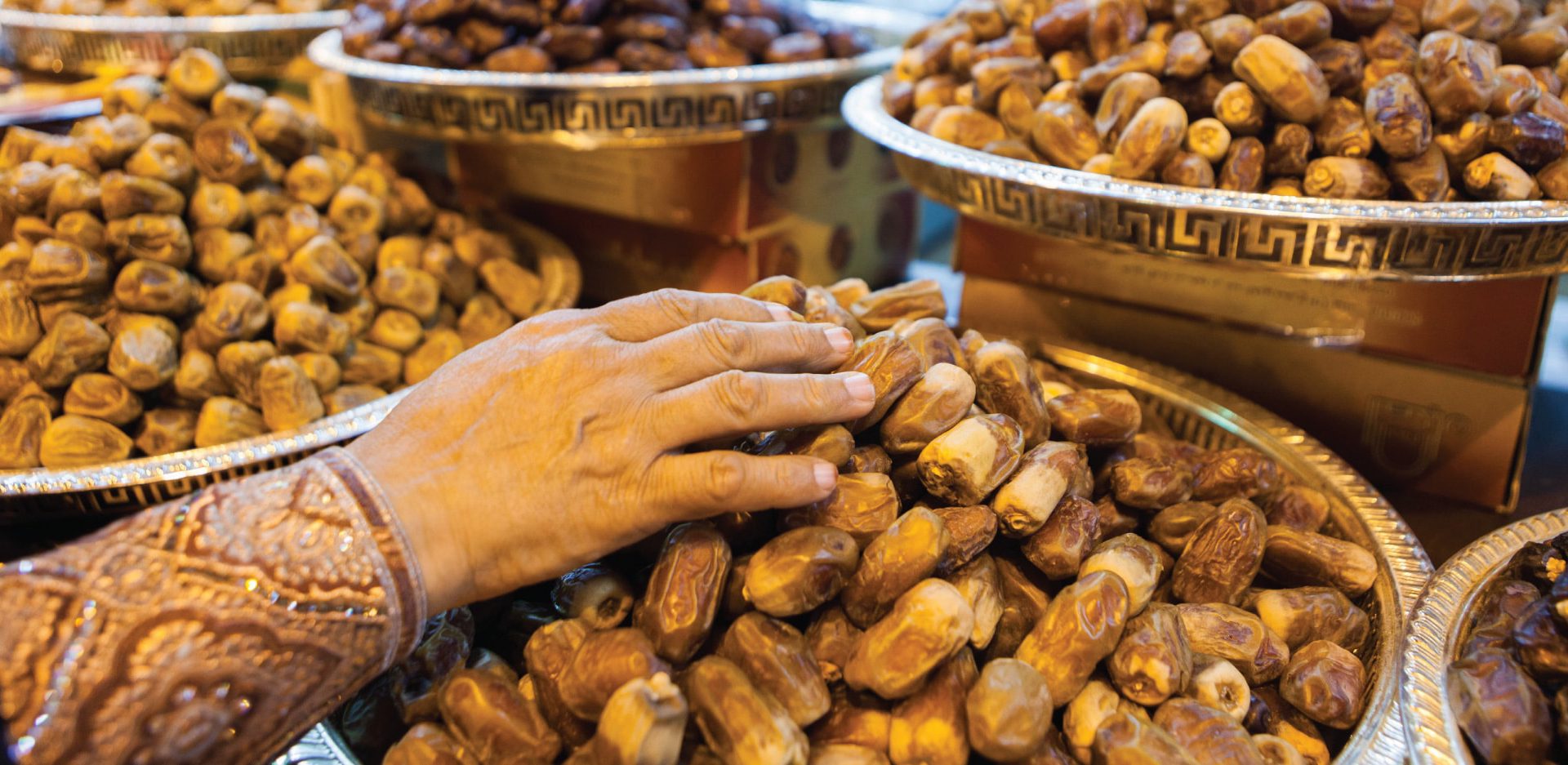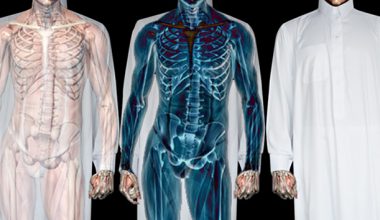With Ramadan finally here, we know people everywhere are searching for the best advice and tips on how to experience a healthy Ramadan. London-based Nutritionist Khaled Ghafir (MSc) teamed up with Clinical Nutritionist Filip Koidis of Wimpole Street and his company W1 Nutritionist, to create notes and tips on how to stay healthy during Ramadan and even lose weight!
By Nutritionist Khaled Ghafir on behalf of W1 Nutritionist
Unlock your fat reserves this Ramadan!
Gaining weight during the fasting month of Ramadan is inevitable, some people might think. If you are one of them, allow me to bring you the good news. This article will provide the evidence base on how fasting can help you lose weight. I am also going to show you how fasting can reset your body's calorie burning mechanism in addition to some tips on how to reduce your calorie intake on Iftar.
Many specialists don’t cover the basics in nutrition as they assume you already know it but unfortunately most don’t. So, if you are looking forward to seizing the opportunity of fasting to gain some health benefits, read on.

Back to the basics
Our bodies break down everything we eat into glucose, which is going to be released into the bloodstream and used as a source of energy. The energy we fail to use will be stored in our bodies in one of these two forms, either as an easily accessible quickly burnable glycogen; which is stored in the liver and muscles or as a slow burning fat which is stored around the waist line.
Unfortunately, your body holds onto this fat and makes fat loss seem like mission impossible. The good news is that fasting is going to change that IF done correctly.
Let’s take a look at a typical day in Ramadan. When you wake up in the morning, your body looks for energy to burn. First, it taps the calories from the snack you had on Suhur, the pre-fast meal, just before dawn (which is hopefully as light as it should be). When those calories run out, your body goes straight for that easily accessible quickly burnable 1,500 – 2000 calories in your liver. Once the glycogen in the liver is gone, your body will turn into a fat burning machine all day long.
Why does our body burn its fat when we’re fasting?
The answer is simple, your body is always going to get its energy by using the glucose in your bloodstream first. I am going to call it “phase one”, then it is going to use up your glycogen reserves in your muscles and liver, let's call this “phase two”. Once this is all used up and only If you don't eat again, your body is going to tap fat stores for energy when it struggles to get the calories it needs from food, let's call this phase three, and that’s when you lose weight.
However, during a non-fasting day, our bodies are never short of calories and we always give it a brand new source of calories to deal with- Food! Consequently, it struggles to reach phase three due to our morning- to- midnight eating schedule! – Just like when you treat yourself to breakfast with a bowl of Fattet Hummos or with an on- the-go Mankosha in addition to the hearty Maklouba that your mom makes for lunch and the Shawerma murder that you might commit with your mates for late dinner. Not to mention all the chocolate, crisps, soda and energy drinks that you might have as snacks. Your body will break all that down and store what you couldn’t burn back in your liver as glycogen, and some of it will be stored as fat where it's most unwanted.
I just want to clarify one thing about fat, fat is not bad all the time, it is good when it serves as the bank that lends us energy when we can't get it from elsewhere! It is bad when this bank opens so many branches all over the body.
Does Ramadan Fasting lead to starvation or muscle loss?
Starvation happens with prolonged periods of fasting for many days or weeks when our bodies start breaking down muscles to use protein as a source of energy. As a result of starvation, you will become very thin and weak.
You will not starve in Ramadan; because you are breaking your fast daily and replacing the energy in your liver and muscles, which means you are highly unlikely to reach the breakdown of muscles for protein.
Fasting and weight loss in research
The vast majority of studies looked at the health benefits of the Intermittent Fasting – the term that describes all types of diets that cycle between fasting periods and non-fasting periods similar to Ramadan fasting. While Muslims have fasted for hundreds of years for religious reasons, research shows Intermittent Fasting has become popular in the recent years for its effectiveness in weight loss too. Here are some of the weight loss benefits you can gain according to research:
- Fasting can help you achieve a significant weight loss, according to a review published in 2014. Those who fasted were found to lose 3-8% of their body weight in a period that ranges between 3 -24 weeks (a man who weighs 70 kg would lose 2-5.5 kg). Impressively, participants also found fasting effective in losing belly fat when participants lost 4-7% of their waist circumference.
- Fasting can decrease your insulin levels by more than 50%, according to a study published in the American Journal of Clinical Nutrition. Lower levels of insulin aid fat loss.
- Fasting can raise Human Growth Hormone by up to an average of 1300% in women and 2000% in men, according to an early study. Growth hormone was found to reduce the total fat as well as the abdominal fat mass, according to another study.
Now that we know that the body can tap its own fat when we fast it is very important to stress on the fact that the main reasons fasting can help you lose weight is that it helps you eat fewer calories – unless you overcompensate by eating much more and bigger meals on Iftar. Therefore, it is important that we pay attention to what we eat in the non-fasting eating window. I won't go through specific dishes due to the wide varieties of food choices across the Arab world especially around the time of the holy month. Instead, I have chosen some tips that are supported by research to help you cut down on your calorie intake and could help you keep calorie deficit that you achieved when fasting.
Here are my top tips:
- Start right and choose water to quench your thirst after a long day of fasting. Note that water itself will not cause weight loss but it does keep you hydrated and could cause stomach distention and may affect food consumption. It is important that you limit the consumption of sugary drinks such as carbonated drinks, artificial fruit juices, and energy drinks as they have a very high amount of hidden sugar that you won't feel until it's deposited as fat somewhere around the waist line.

- Have a couple of dates to break your fast, they are delicious and will give you some of the sugar you need quickly.
- Trick your brain and take a break. From the moment you eat your food, it takes 20 minutes for it to travel from the stomach to the ileum and then release the hormone responsible for making you feel full to the brain, “Hey! I'm full”. Take a break, finish your prayer, or engage in a conversation to give your stomach a chance to tell your brain you have had enough food before you overeat.
- Healthy starters are a good way to help you lower your overall calorie intake. A study concluded that consuming foods that are high in fiber and water like salad before meals “could prompt sensible intake and can remind dieters to resist eating tempting food”. Dieters in the study consumed 21% fewer calories when they started their meals with salad. Vegetable or lentil soup are healthy popular choices. Mixed salads are also a filling healthy starter as long as you avoid high caloric dressings. Lemon, vinegar and a drizzle of olive oil are just what you need.

- Chew your food thoroughly, enjoy your meal and don’t rush it. A study showed that normal weight individuals who ate their meal at a slow speed showed a significant reduction in energy intake. Furthermore, participants felt less hungry after a slow meal in comparison to a fast one.
- Bake and grill, don’t fry. According to the USDA Food Composition Database, you consume about 278 calories for 299 grams of baked potatoes. While 312 grams of fried potatoes has 826 calories.

- Favor desserts that are natural over those containing processed sugar. While fruits, milk based sweets, and puddings are nutritious, low in fat, high in fiber and can help you slow your digestion and feel fuller, desserts that have added sugar (Knafeh, Baklava, and Qatayef) are high in calories and saturated fat and contribute to your weight gain. Remember, moderation is a key to weight loss.

Happy fasting!
Former tennis professional, current nutrition guru, and healthcare entrepreneur, Filip Koidis’ approach and view, is that nutrition requires counseling and takes time for each individual to gradually build up their own tailored plan with goals to fit their lifestyle. W1 Nutritionist utilizes each individual’s differences and creates a bespoke formula to create successful weight loss responses tailored to each individual’s needs. Find out more by visiting its website.







